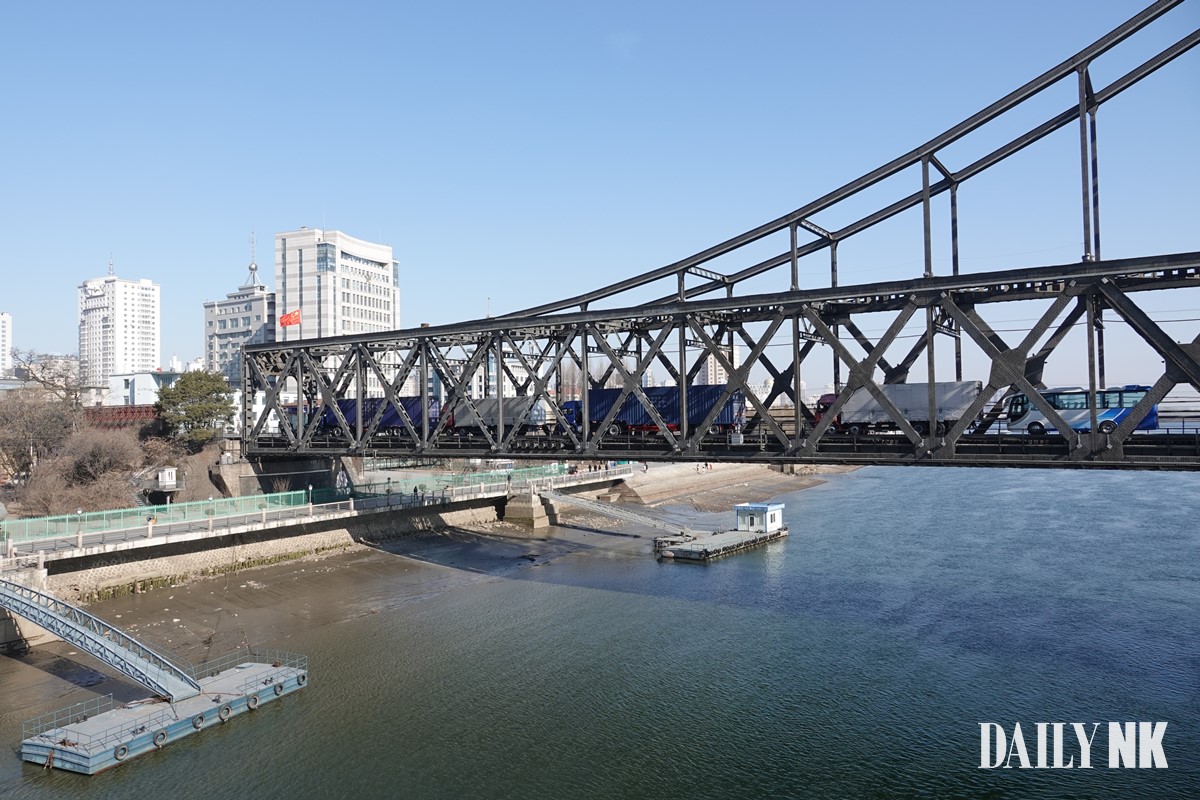Unable to cope with business difficulties owing to the prolonged closure of the Sino-North Korean border, a growing number of workplaces are closing in North Korea. A source says the companies have tried to survive by laying off staff and selling assets, but they have hit their limit.
In a telephone conversation with Daily NK last Thursday, a source in North Pyongan Province said that a string of factories that produced clothing on a contract manufacturing basis for China have closed in Sinuiju. “Because of this, the mood in the city is growing worse,” he claimed.
Located on the Sino-North Korean border, Sinuiju is home to many businesses that take orders from China to manufacture items on a contract basis, delivering the finished articles to China. However, with Sino-North Korean trade suspended due to the COVID-19 pandemic, those businesses appear mired in difficulties with orders from China drying up.
According to a report on trends in North Korean trade in 2020 published in July by South Korea’s Korea Trade Promotion Corporation (KOTRA), North Korean imports and exports amounted to USD 863 million last year, falling 73.4% from the previous year.
According to the source, the president of one contract manufacturing company in Sinuiju had been delivering goods to China with about 500 employees in his pay. He was a successful businessman, paying fairly generous wages to his workers prior to COVID-19.
However, with work drying up with the closure of the border, the factory fell into serious business difficulties. The company president responded by laying off about 400 people this spring. He intended to lower fixed costs by reducing staff and to wait things out until the border reopened.

The president reportedly expressed frustration that he wanted to keep employing his workers, but he had no choice but to let them go — even if he sold all his property, he would not be able to keep the business going. In particular, the source said he complained that inconsistent government policy was making it even harder to survive.
The company president struggled to keep the business afloat, selling off the company’s buses and trucks. However, he heard no news that trade would reopen. Ultimately, he laid off his remaining workers in July and plans to close the factory soon.
Though factories face business troubles so serious they are shutting down, it does not appear North Korean authorities are lessening the “loyalty funds” these businesses must pay.
“Even if the company fails, the tasks and bribes they must provide remain,” said the source. “The president of the [aforementioned contract manufacturing] company is worried that he might be exiled because he can’t pay up.”
North Korean trading companies must pay yearly “party funds” (loyalty funds) and deliver items demanded by the authorities. North Korean authorities press the people in charge of companies to make absolutely sure they pay their loyalty funds and deliver these goods, regardless of the circumstances.
Last year, an official in charge of managing North Korean workers in China extorted the meal money of his workers to pay his loyalty fees when he had difficulty coming up with loyalty fund cash.
Meanwhile, Sinuiju residents who lost their jobs following the closure of contract manufacturing businesses are reportedly suffering economic distress.
“Most of the locals who lost their jobs are having serious problems making ends meet,” said the source. “However, with no new work and no capital to do business, locals are worrying a lot.”
















